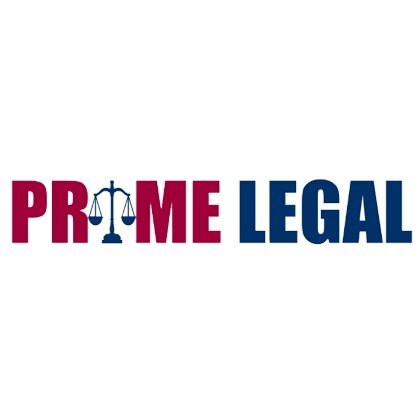Best Conveyancing Lawyers in Kathmandu
Share your needs with us, get contacted by law firms.
Free. Takes 2 min.
Free Guide to Hiring a Real Estate Lawyer
List of the best lawyers in Kathmandu, Nepal
About Conveyancing Law in Kathmandu, Nepal
Conveyancing refers to the legal process of transferring ownership of property or land from one person to another. In Kathmandu, Nepal, this process involves a series of steps governed by Nepal’s property and land laws, administrative procedures, and tax regulations. Conveyancing is an essential part of any real estate transaction, ensuring that the transfer is lawful, the rights of all parties are protected, and all legal requirements are fulfilled. While the basics of conveyancing are similar around the world, there are unique legal traditions, documentation needs, and procedures specific to Kathmandu and the rest of Nepal.
Why You May Need a Lawyer
Most people in Kathmandu seek the assistance of a lawyer during the conveyancing process due to the complexity and importance of property transactions. Here are some common situations where legal help is valuable:
- Buying or selling a house, apartment, or land
- Transferring property between family members (e.g., inheritance or gifts)
- Dealing with property disputes or unclear land titles
- Registering new property or updating records at the Land Revenue Office
- Ensuring contract terms are fair and enforceable
- Carrying out due diligence to prevent fraud or encumbrances
- Navigating municipal or governmental requirements specific to Kathmandu
Lawyers play a crucial role in safeguarding your interests, preparing the necessary documents, and guiding you through legal obligations, ensuring the transaction is valid and binding under Nepalese law.
Local Laws Overview
Conveyancing in Kathmandu is primarily governed by several key legal frameworks and practical rules:
- The Muluki Civil Code is the principal legal document, outlining procedures for contracts and property transfers.
- Property sales and transfers must be registered with the Land Revenue Office (Malpot), and appropriate fees and taxes must be paid.
- Foreigners are generally restricted from owning land in Nepal, though certain lease and company structures may apply limiting ownership as stipulated by local regulations.
- Both parties must provide valid citizenship certificates and clear title documents establishing ownership and the property’s legal status.
- Due diligence is essential to ensure there are no legal disputes or claims over the property, such as unpaid loans, family inheritance issues, or encumbrances.
- The sale agreement and transfer deed (Lalpurja) must comply with all formal legal requirements and are typically drafted in Nepali language.
- After completion, the transaction must be duly recorded, and the government issues a new certificate in the buyer’s name.
Local customs, municipal building codes, and zoning regulations may also impact the conveyancing process within Kathmandu valley and its surrounding municipalities.
Frequently Asked Questions
What is the first step in buying property in Kathmandu?
The first step is to conduct legal due diligence on the property, including verifying its title, ownership, and ensuring there are no disputes or unpaid taxes. A lawyer can assist in this process before any agreement is signed.
Can foreigners buy real estate in Kathmandu, Nepal?
Direct property ownership by foreigners is generally not permitted in Nepal. However, under certain circumstances like business investment through registered companies, limited rights may be available. It is essential to consult with a legal expert.
What documents are required for property transfer in Kathmandu?
Key documents include the original land or property deed (Lalpurja), citizenship certificates of buyer and seller, land tax receipts, police report, and the transfer deed. Other documents may be needed based on the transaction’s nature.
How is property ownership verified?
Ownership is verified through the Land Revenue Office by reviewing the official register and conducting a title search. Lawyers often assist with this process to ensure the title is clear and free from disputes.
Are there any taxes or fees involved?
Yes, buyers must pay government-prescribed registration fees and property transfer taxes, typically ranging from 5 to 7 percent of the property’s value. Notary, legal, and administrative fees are also applicable.
How long does the conveyancing process take in Kathmandu?
The process can take anywhere from one to several weeks, depending on document readiness, due diligence, and how quickly the Land Revenue Office processes the registration.
What is a Lalpurja?
A Lalpurja is the legal document or certificate that proves ownership of land or property in Nepal. It is an essential part of the conveyancing process and is updated upon successful transfer.
Can family members transfer property among themselves?
Yes, property can be transferred between family members through a process called “Ghar Bhada Garna” or gift transfer, but it must still be registered with the Land Revenue Office and may be subject to certain taxes and requirements.
What happens if there is a legal dispute over the property?
If there is a dispute, the transaction may be delayed or prevented until the issue is resolved. Legal advice and court intervention may be necessary to clear the title or settle conflicts before the transfer can proceed.
Do I need to be present in Kathmandu for the conveyancing process?
Physical presence is generally required for signing documents at the Land Revenue Office. However, in certain cases, power of attorney can be given to a trusted representative or lawyer to act on your behalf.
Additional Resources
Several resources can assist individuals seeking legal help with conveyancing in Kathmandu:
- Land Revenue Office (Malpot) - The main authority for property registration and record keeping
- Department of Land Management and Archive - For information on land laws, registration, and policies
- Nepal Bar Association - To find licensed and reputable conveyancing lawyers
- Nepal Rastra Bank - For guidance on allowable transactions and foreign investment regulations
- Local Municipalities - For queries about zoning, building permits, and municipal taxes
Next Steps
If you are considering buying, selling, or transferring property in Kathmandu, it is advisable to:
- Gather all relevant documents related to the property and your identification
- Consult with a qualified conveyancing lawyer to understand your rights and obligations
- Carry out a title search and due diligence before committing to any agreement
- Prepare and review all legal documents with the help of your lawyer
- Visit the Land Revenue Office to register the property transfer and complete the process
Professional legal advice can help you avoid common pitfalls, ensure compliance with local laws, and provide peace of mind throughout your property transaction in Kathmandu, Nepal.
Lawzana helps you find the best lawyers and law firms in Kathmandu through a curated and pre-screened list of qualified legal professionals. Our platform offers rankings and detailed profiles of attorneys and law firms, allowing you to compare based on practice areas, including Conveyancing, experience, and client feedback.
Each profile includes a description of the firm's areas of practice, client reviews, team members and partners, year of establishment, spoken languages, office locations, contact information, social media presence, and any published articles or resources. Most firms on our platform speak English and are experienced in both local and international legal matters.
Get a quote from top-rated law firms in Kathmandu, Nepal — quickly, securely, and without unnecessary hassle.
Disclaimer:
The information provided on this page is for general informational purposes only and does not constitute legal advice. While we strive to ensure the accuracy and relevance of the content, legal information may change over time, and interpretations of the law can vary. You should always consult with a qualified legal professional for advice specific to your situation.
We disclaim all liability for actions taken or not taken based on the content of this page. If you believe any information is incorrect or outdated, please contact us, and we will review and update it where appropriate.

















